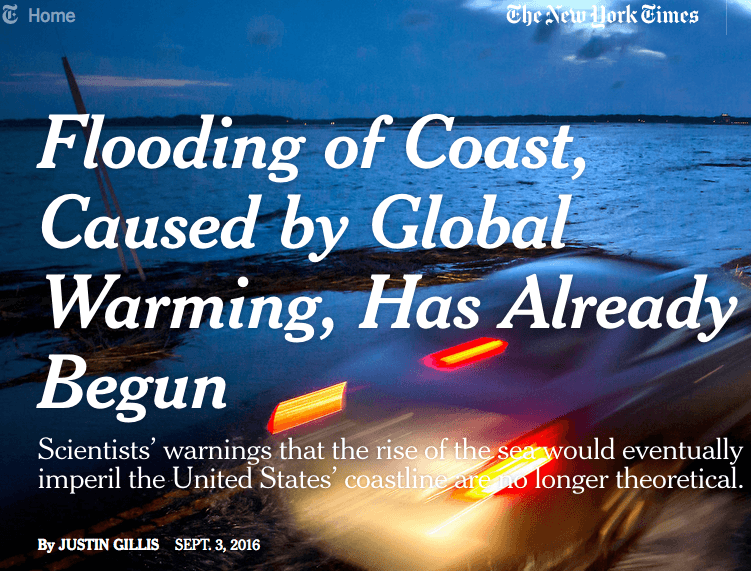

REVIEW
CLAIM: In 2013, scientists reached a consensus that three feet was the highest plausible rise by the year 2100. But now some of them are starting to say that six or seven feet may be possible.
Benjamin Horton, Professor, Earth Observatory of Singapore:
Yes, I couldn’t agree more. I actually wrote a paper regarding a survey of sea-level scientists. The concluding statement was that most experts estimate a larger sea-level rise by AD 2100 than the IPCC’s Fifth Assessment Report AR5 projects:
- Horton, Rahmstorf, Engelhart, and Kemp (2014) Expert assessment of sea-level rise by AD 2100 and AD 2300. Quaternary Science Reviews
Richard Alley, Professor, PennState University:
In the 2013 IPCC report, there is a reference period (1986-2005), there is an assumption of a reference pathway of future emissions, and there is a confidence assigned to the estimate. That being said, I think the statement is pretty good. The second sentence is I believe accurate; the work by DeConto and Pollard, building on Pollard et al. (note that I’m involved in this study), for example, points to the possibility of rapid warming triggering rapid sea-level rise.
- DeConto and Pollard (2016) Contribution of Antarctica to past and future sea-level rise, Nature
- Pollard et al (2015) Potential Antarctic Ice Sheet retreat driven by hydrofracturing and ice cliff failure, Earth and Planetary Science Letters
Ken Caldeira, Senior Scientist, Carnegie Institution for Science:
This is a correct statement, but a key word is ‘some of them’.
There have been some people, notably Jim Hansen, who, as I understand it, have been proposing high rates of sea-level rise without providing a mechanism for these sea-level rise rates that seemed plausible to most glaciologists. It is my understanding that the mechanisms proposed by DeConto and Pollard (i.e., mechanical instability of ice cliffs) does appear to be plausible and has some support in observations of ice shelf break-up that has already occurred in Antarctica. In other words, if this sentence were written a year ago, “some of them” would have referred to a few scientists who hold what might be considered ‘outlier’ views. Following the work of DeConto, Pollard, and others, my sense is that the risk of very high rates of sea-level rise seems substantially higher, even to what might be considered ‘mainstream’ scientists.


